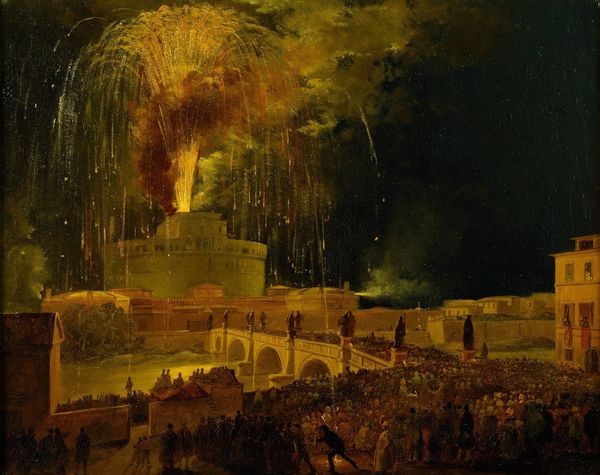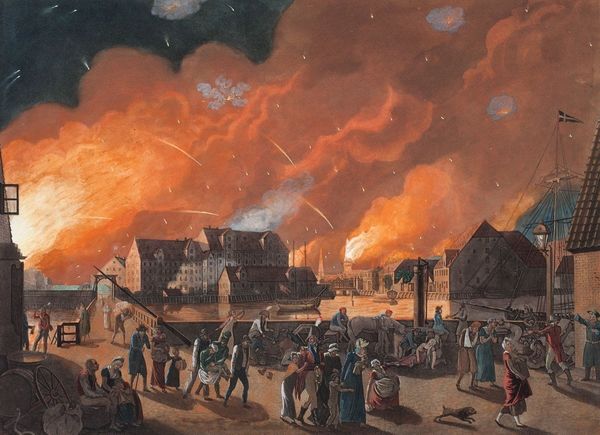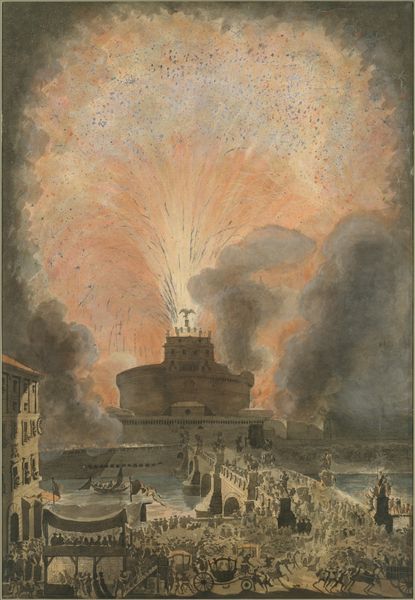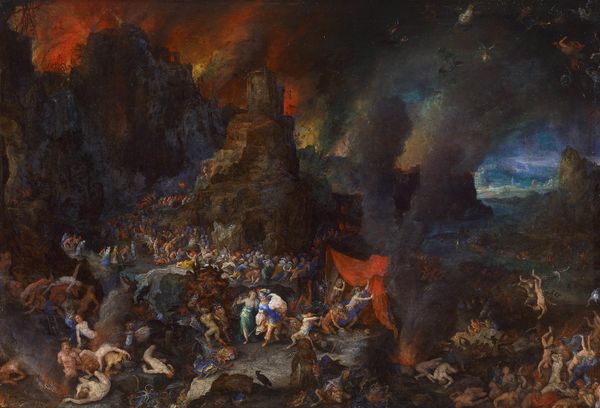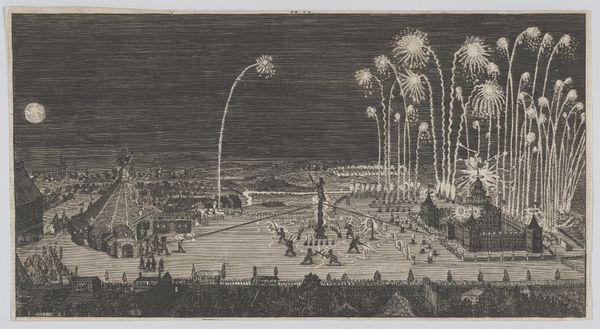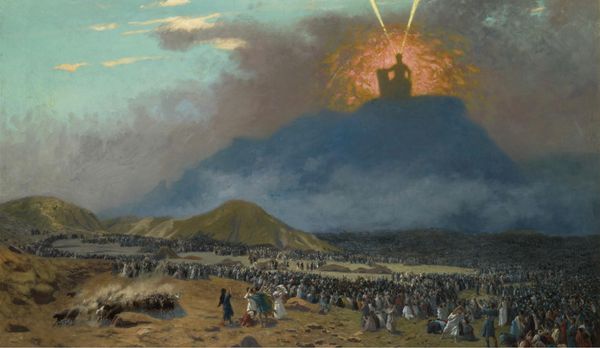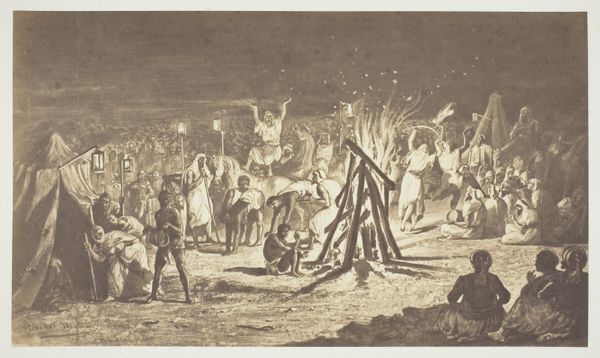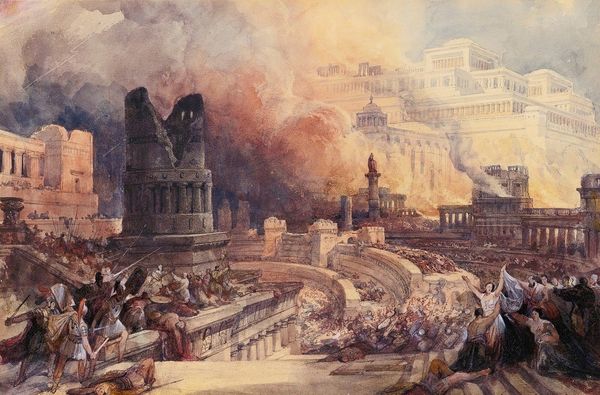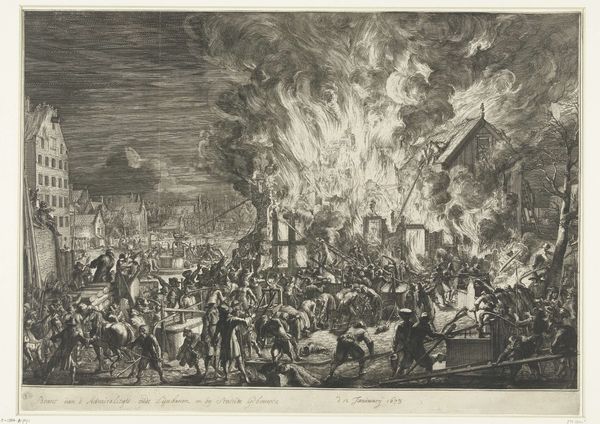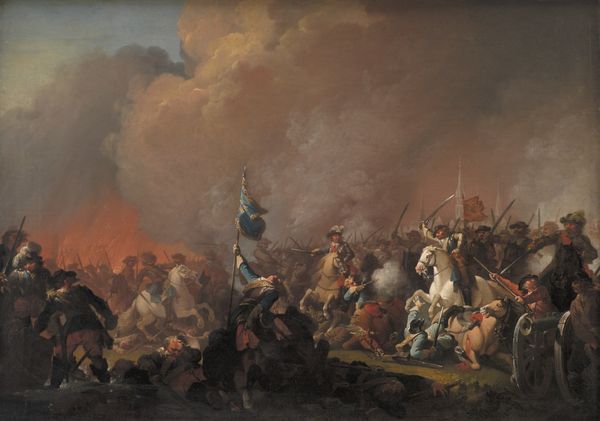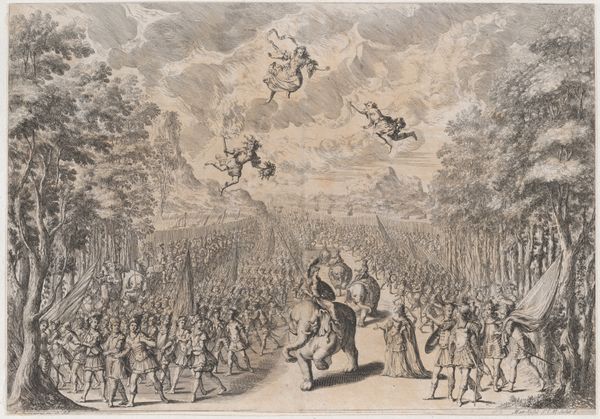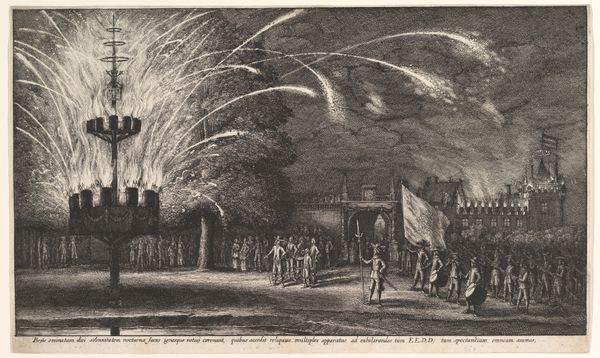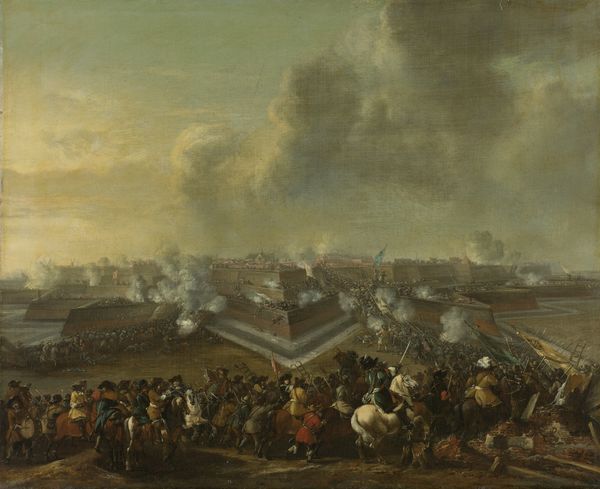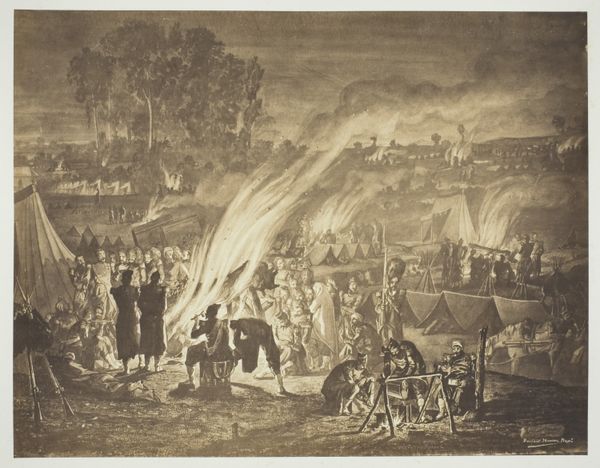
Coronation of Alexander II, Moscow, September 17, 1856: Fireworks Display before the Cadets' Building 1856
0:00
0:00
Dimensions: image: 20 3/4 x 27 3/4 in. (52.7 x 70.5 cm)
Copyright: Public Domain
Achille-Isidore Gilbert made this print, Fireworks Display before the Cadets' Building, using lithography, a process that democratized image-making in the 19th century. The key to lithography is a block of limestone, whose smooth surface attracts grease. The artist draws on the stone with a greasy crayon, then wets the stone. When ink is applied, it sticks only to the drawn areas. Paper is then pressed to the stone, transferring the image. The resulting print, like this one, can then be colored by hand, a labor-intensive process. Lithography allowed for the relatively quick and cheap reproduction of images, contributing to the rise of mass media and consumer culture. Consider the irony: this print celebrates the coronation of Alexander II, yet was made using a technique that helped spread revolutionary ideas. Lithography, in effect, put art within reach of the masses.
Comments
No comments
Be the first to comment and join the conversation on the ultimate creative platform.
